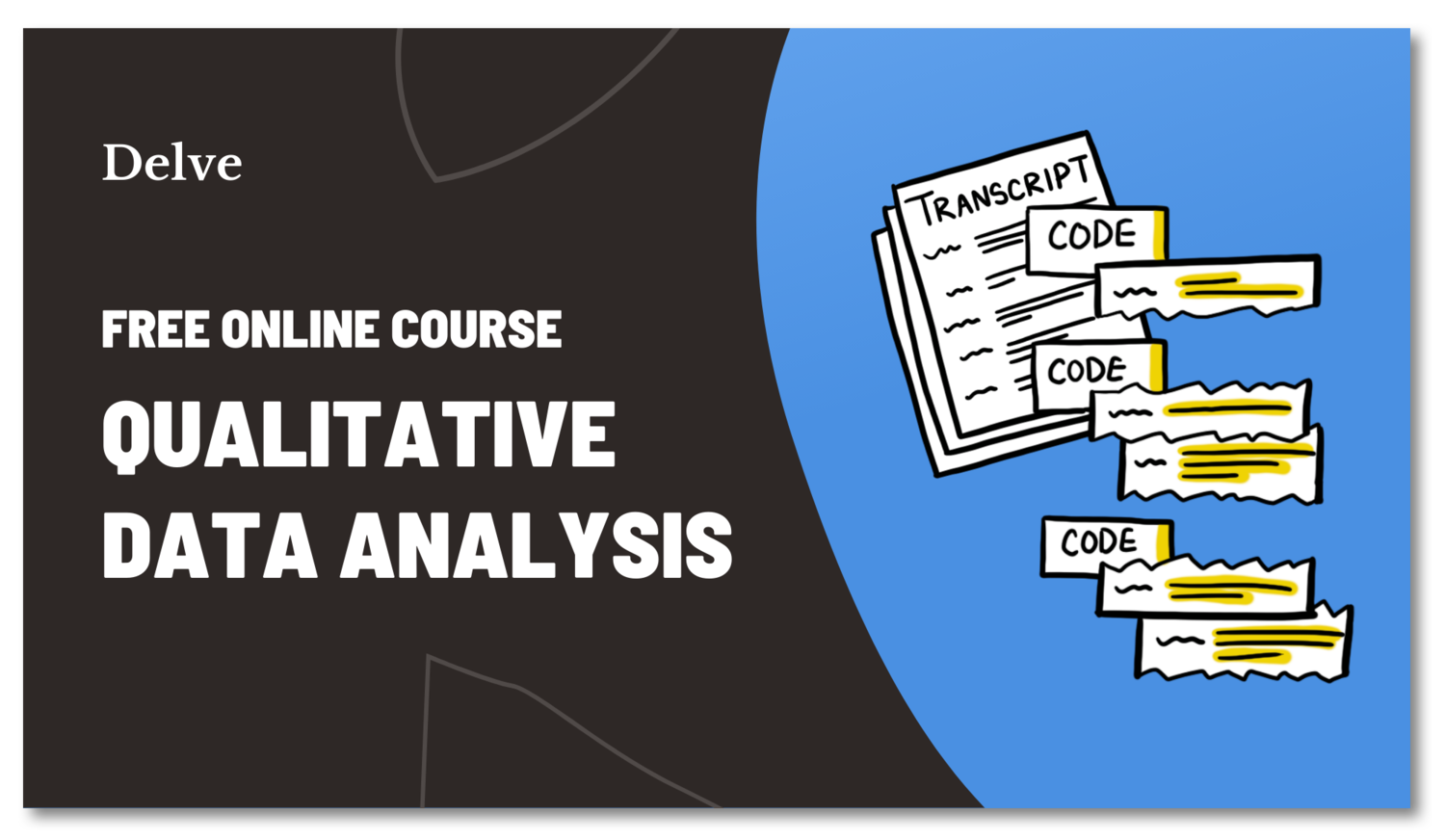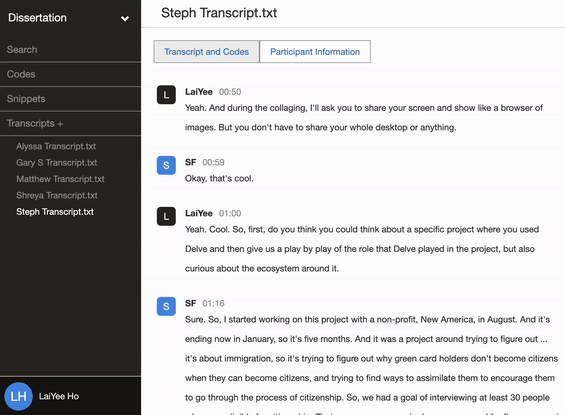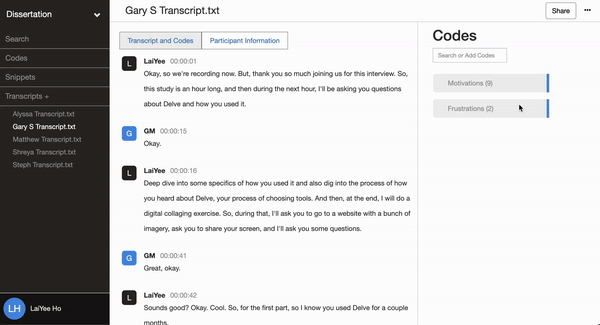Analytical Memos
What are analytical memos?
Analytical memos are brief notes about the thoughts, ideas, and questions that come to the researcher's mind during data gathering, coding, or data analysis. Qualitative researchers use analytical memos to note down their reflections and code them as additional data for their research. The memo's content may be thoughts about the collected data, plans for their study, discoveries during the research, or whatever they feel is worth articulating.
In simple terms, analytical memos are recordings of the conversations you are having with your research data. This process inspires critical thinking and helps you reflect on your data and challenge your assumptions. There are no standard formats or styles for writing analytical memos—you can write them in whatever style you like, informal, formal, or conversational.
Why are analytical memos important in qualitative research?
Analytical memos are an essential part of qualitative inductive logic. Here are some of the reasons why memoing is important in research:
It allows the researcher to reflect and record their thoughts on their data, coding process, coding choices, data analysis methods, and more.
Analytical memos can help you remember things you might forget if not written down.
Researchers use analytical memos to keep a record of their decision-making trail, i.e., keeping records of the decisions made in each phase of the study.
Analytical memos make it easy to explore a phenomenon, reflect on the data available, compare data, examine relationships, and challenge interpretations.
Although analytical memos are usually written for the researcher's eye only, you can use them to share your ideas or get opinions about your study from other persons.
Analytical memos can provide supporting documentation for your research.
Structure, form, and example of analytical memos
As stated earlier, there is no standard approach to writing analytical memos. We recommend that you go with whatever style or structure you like. You can find what you are most comfortable with by testing several options like conversational tone or a formal style.
The most important thing is to make sure the analytical memo is written in a way that makes it very easy to retrieve information.
Watch Webinar
See how to use analytical memos in grounded theory
Example of an analytical memo
Below is an example of an analytical memo extracted directly from a document produced by the Tobacco Control Evaluation Center (TCEC). The memo below was written based on raw data from an interview with participants to evaluate their Spring 2011 Regional Training.
Here is raw data from the interview with participants:
“ I thought it was really quite useful. I think in the work we do in tobacco that there’s a lot of webinars, and it’s really easy to listen to a webinar without actually listening. You can turn it on and still answer emails or do whatever you would normally do. But going in person gives you the time and lets you step out of your day to concentrate on that. And I think the exercises we did were the most productive part of the training.” (Onsite: Interview #7)
“Oh yeah, I would get more out of the face to face. I am a hands-on, visual person, so for anything in person will always help me gain more out of it. But with the travel constraints and so forth, it was nice to just be able to gain the information through the webcast.” (Remote: Interview #1)
“Sometimes webinars can be great, and at the same time they are not great, because when you’re doing a webinar at your desk, you’re doing other work, and you’re not really listening. So you don’t really grasp things fully in the webinar. That’s what I liked about the training, we listened, we were focused, we were there, and we did exercises, so I liked the format a lot.” (Onsite: Interview #15)
“It fulfilled my needs fine because of time and cost, but if I had wanted more in depth and had been able to go, I would have chosen the in person (format). I feel that webinars are very isolating. I like being able to have the interactions. But if you have to choose between time and money and all those things, webinars can fill the gap.” (Remote: Interview #6)
Below is the analytical memo produced from the raw data
The notion that the onsite training was “interactive” and “face-to-face” and therefore seemed enjoyable and more helpful was often stated in contrast of trainings that are conducted via webinar. Participants tended to feel strongly that the onsite training—in contrast to a remote, webinar training—provided them benefits that they could not have obtained from a webinar alone. This idea was described in various fashions from both onsite and webinar participants, but the theme remained the same. Again, the seeming benefits of “interactivity” and learning concepts by “doing exercises” was most easily seen when participants contrasted it with what they considered the drawbacks of a remote webinar training.
The drawbacks of a webinar, besides the lack of hands on exercises and face-to-face interactions, included the fact that following along with a webinar could be difficult due to the many distractions available to participants. Respondents noted how email and doing other work during a webinar made it “easy to listen to a webinar without actually listening.”
Those who participated in the remote (webinar) training were generally appreciative that the training was offered via webinar. Many of the remote participants mentioned that the logistics of attending an onsite training—including travel and time constraints, and so on—made it difficult to attend an onsite training. The remote trainings were therefore seen as convenient.
-Memo from Webinar Interview Study
Theoretical memos in grounded theory
Theoretical memos are documentation of the researcher's ideas about evolving codes and their relationships. In grounded theory, researchers create theoretical memos by theorizing the data collected from the field. In other words, they transform the data into theoretical accounts. It is an important part of grounded theory as it prompts the researcher to start analyzing data and codes early in their research process.
Learn more about grounded theory in our Practical Guide to Grounded Theory.
Theoretical memos are great for catching your thoughts about your data and the connections you make between codes. Additionally, they provide an avenue for you to compare codes, theoretical categories, and concepts. Researchers write theoretical memos throughout the research process, from the data gathering stage to the final analysis of their data.
Qualitative analysis doesn't have to be overwhelming
Take Delve's free online course to learn how to find themes and patterns in your qualitative data. Get started here.

Memos Made Easy — With Delve
Now that you understand the use case of both analytical memos and theoretical memos in qualitative research, the last step is to implement them!
Writing memos by hand? This can work well for solo researchers. The problem is that written memos require their own system for retrieval, creating that system requires time, and—in the end—memos still tend to get lost in the shuffle during research. Working with a team of other researchers compounds those issues.
And the truth is, most CAQDAS software isn’t much better in this regard.
As researchers ourselves, our team knew it was important to emphasize three key features in our memo system:
✅ Easy to leave a memo
✅ Lightning fast to retrieve them
✅ Collaboration-friendly
That’s what you get with Delve’s user-friendly interface and search functionality.
Memo As You Code
When coding with Delve, memos are always just one click away. That way you can easily document your own reflections and thoughts as you analyze your data. Capturing brief thoughts, ideas, and questions that come to mind during data analysis is as simple as click and save. See how to add a memo here.
Discuss analysis choices with your team
When working together with a team, using memos is a simple, organized way to discuss your code decisions. Delve’s collaborative environment makes it easy to keep the conversation going.
Whether you need to ask a question, gain clarification, or strategize about how to code a particular snippet, you can use the memo feature to leave notes directly on code snippets. See how to collaborate with memos here.
Try Delve Qualitative Analysis Tool
The Delve qualitative analysis tool can streamline the code for your qualitative data and help you to practice peer debriefing. Start a free trial of Delve today!
References:
Birks, M; Chapman, Y; Francis, K. (2008). Memoing in qualitative research: Probing data and processes. Journal of Research in Nursing. Sage Publications.
Charmaz, Kathy (2006). Constructing Grounded Theory: A practical guide through Qualitative Analysis. Thousand Oaks, California: Sage.
Montgomery, P; Bailey, P. (2007). Field Notes and Theoretical Memos in Grounded Theory. Western Journal of Nursing Research. Sage Publications.
Rogers, R. (2018). Coding and Writing Analytic Memos on Qualitative Data: A Review of Jonny Saldaña’s The Coding Manual for Qualitative Researchers. The Qualitative Report.
Cite this blog post:
Delve, Ho, L., & Limpaecher, A. (2021a, June 14) Analytical Memos https://delvetool.com/blog/memos












